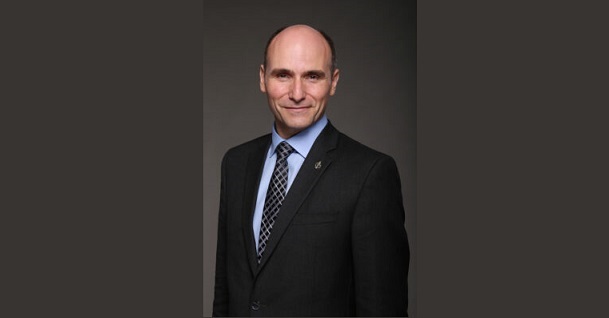The Canadian government continues to take unprecedented and decisive action to protect the health and safety of Canadians. Today’s measures, including new requirements for third-country pre-departure testing for travelers coming to Canada from certain southern African countries, are being put in place to prevent new variants of the COVID-19 virus from being introduced and spread in Canada.
Canadian Health Minister Honourable Jean-Yves Duclos issued this important statement to the Canadian People.
I was informed today by the Public Health Agency of Canada that testing and monitoring of COVID-19 cases has confirmed two cases of the Omicron variant of concern in Ontario, Canada.
This development demonstrates that our monitoring system is working.
I have spoken with my provincial counterpart in Ontario whose public health officials are working provincially and locally to contact and trace the cases.
As the monitoring and testing continue with provinces and territories, it is expected that other cases of this variant will be found in Canada.
I know that this new variant may seem concerning, but I want to remind Canadians that vaccination, in combination with public health and individual protective measures, is working to reduce the spread of COVID-19 and its variants in our communities.
On November 26, in response to concerns about the Omicron variant of concern, I announced that the Government of Canada implemented enhanced border measures for all travelers who have been in the Southern Africa region — including South Africa, Eswatini, Lesotho, Botswana, Zimbabwe, Mozambique, and Namibia— within the last 14 days before arriving in Canada, until January 31, 2022.
These border measures are being implemented while the Canadian and global medical, public health and research communities actively evaluate this variant – as has been done with previous variants — to better understand the potential implications in terms of transmission, clinical presentation, and vaccine efficacy.
Public health authorities in South Africa have confirmed that a new COVID-19 variant of concern (B.1.1.529) has been detected in that country. Over the past 24 hours, this variant – named Omicron by the World Health Organization — has also been detected in other countries.
Since the beginning of the pandemic, the Government of Canada has put measures in place at our border to reduce the risk of the importation and transmission of COVID-19 and its variants in Canada related to international travel. Today, the Minister of Transport, the Honourable Omar Alghabra, and the Minister of Health, the Honourable Jean-Yves Duclos, announced new border measures to protect the health and safety of Canadians.
As a precautionary measure, until January 31, 2022, the Government of Canada is implementing enhanced border measures for all travelers who have been in the Southern Africa region — including South Africa, Eswatini, Lesotho, Botswana, Zimbabwe, Mozambique, and Namibia— within the last 14 days before arriving in Canada.
Foreign nationals who have traveled to any of these countries within the previous 14 days will not be permitted entry into Canada.
Canadian citizens, permanent residents, and people with status under the Indian Act, regardless of their vaccination status or having had a previous history of testing positive for COVID-19, who have been in these countries in the previous 14 days will be subject to enhanced testing, screening, and quarantine measures.
These individuals will be required to obtain, within 72 hours of departure, a valid negative COVID-19 molecular test in a third country before continuing their journey to Canada. Upon arrival to Canada, regardless of their vaccination status or having had a previous history of testing positive for COVID-19, they will be subject to immediate arrival testing. All travelers from the listed countries will also be required to complete a test on day 8 after arrival and quarantine for 14 days
All travelers from affected countries will be referred to Public Health Agency of Canada (PHAC) officials to ensure they have a suitable quarantine plan. Those arriving by air will be required to stay in a designated quarantine facility while they await their arrival test result. They will not be permitted onward travel until their quarantine plan has been approved and they have received a negative arrival test result.
Those arriving by land may be allowed to proceed directly to their suitable isolation location. If they do not have a suitable plan — where they will not have contact with anyone they haven’t traveled with — or do not have private transportation to their place of quarantine, they will be directed to stay at a designated quarantine facility
There will be increased scrutiny of quarantine plans for travelers from these countries and rigorous monitoring to ensure travelers are complying with quarantine measures. Further, travelers, regardless of their vaccination status or having had a previous history of testing positive for COVID-19, who have entered Canada from these countries in the past 14 days will be contacted and directed to be tested and quarantined while they wait for the results of those tests. There are no exemptions specifically provided for in these new requirements.
The Government of Canada advises Canadians to avoid traveling to countries in this region and will continue to monitor the situation to inform current or future actions.
Canada continues to maintain pre-entry molecular testing for vaccinated and unvaccinated international travelers arriving from any country to reduce the risk of importation of COVID-19 including variants. PHAC has also been monitoring case data, through mandatory randomized testing upon entry into Canada.
The Government of Canada will continue to assess the evolving situation and adjust border measures as required. While the impact of all variants continues to be monitored in Canada, vaccination, in combination with public health and individual measures, is working to reduce the spread of COVID-19 and its variants.
The Government of Canada will continue to assess the evolving situation and I will provide updates as we have them.”
- There are no direct flights between Canada and southern African countries.
- The Government of Canada is working with provinces and territories and the Canadian COVID Genomics Network to detect known and potentially emerging COVID-19 virus variants including this new variant from South Africa.
- In February 2021, the Government of Canada increased its capacity to find and track variants of concern in Canada by investing $53 million in an integrated Variants of Concern Strategy. The Government of Canada is working with provinces and territories and the Canadian COVID Genomics Network and the Canadian Institutes of Health Research on surveillance, sequencing and scientific efforts to detect known and potentially emerging COVID-19 virus variants of concern.
- The United Kingdom, European Union and United States have put similar restrictions to mitigate the risk of introducing this variant from the Southern African region.
More on Jean-Yves Duclos, Canadian Minister of Health
The Honourable Jean-Yves Duclos has been the Member of Parliament for Québec since 2015.
He has previously served as President of the Treasury Board and Minister of Families, Children, and Social Development.
Minister Duclos is a well-published author, conference speaker, and economics expert. Prior to 2015, he was the Director of the Department of Economics and a tenured professor at the Université Laval.
In addition to his professorial duties, Minister Duclos held the former Industrial Alliance Research Chair on the Economics of Demographic Change (now the Research Chair in Intergenerational Economics), served as President-Elect of the Canadian Economics Association, and was a member of the Institut sur le vieillissement et la participation sociale des aînés.
He was also Vice-President and Fellow of the Centre interuniversitaire de recherche en analyse des organisations, Senior Fellow of the Fondation pour les études et recherches sur le développement international, and Fellow-in-Residence at the C.D. Howe Institute. He is also the co-founder of the Poverty and Economic Policy Research Network (Partnership for Economic Policy).
Minister Duclos’ hard work has been recognized with prestigious grants, including the prix Marcel-Dagenais from the Société canadienne de science économique and the Harry Johnson Prize for the best paper published in the Canadian Journal of Economics. In 2014, he was elected a Fellow of the Royal Society of Canada, the highest accolade bestowed on Canadian researchers.
Minister Duclos earned a Bachelor of Arts in Economics (First-Class Honours) from the University of Alberta, and master’s and doctoral degrees in Economics from the London School of Economics and Political Science.
SOURCE Public Health Agency of Canada























